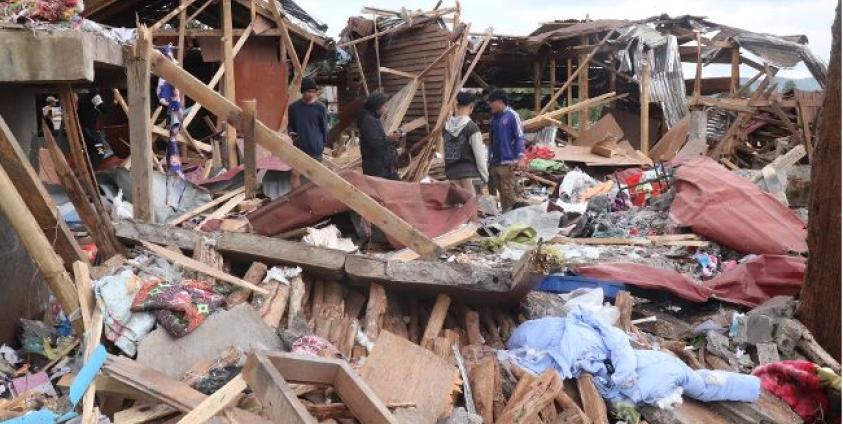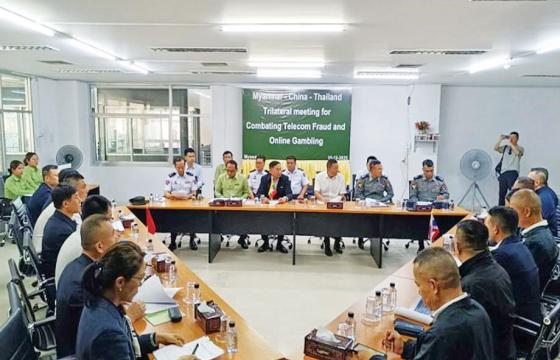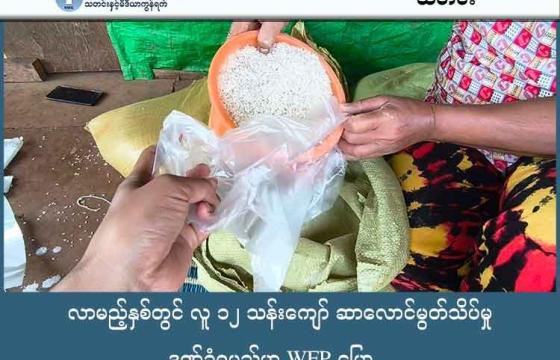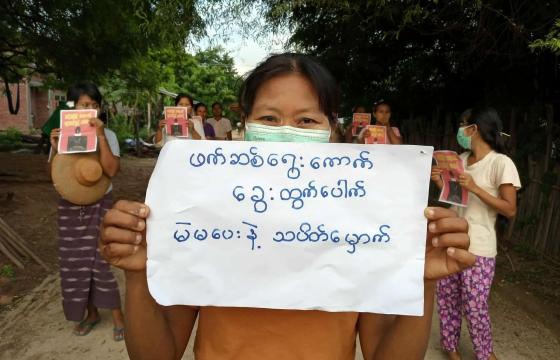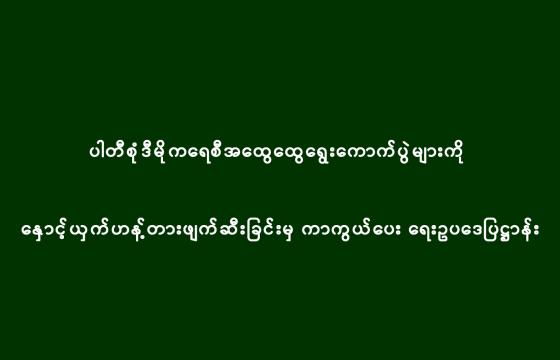Junta airstrikes are increasingly targeting areas where there is no ongoing fighting in Karenni State, according to the Karenni State Interim Executive Council (IEC) and frontline sources.
Since the start of 2024 junta airstrikes have have increasingly targeted civilian areas with more frequent and unpredictable airstrikes, according to U Banyar, the No. 2 Secretary of the IEC, the provisional Karenni State government established on 12 June 2023 by the Karenni State Consultative Council (KSCC).
He said to NMG: “The patterns of junta airstrikes have become increasingly unpredictable. Sometimes warplanes appear suddenly and drop bombs immediately. Other times, reconnaissance planes scout the area first, followed by fighter attacks. In some cases, aircraft strike arbitrarily without having specific targets. In summary, their actions have grown highly erratic.”
U Banyar added that before 2024, the junta’s reconnaissance planes would typically fly two rounds over targeted areas before attack aircraft dropped bombs. This gave locals a chance to evacuate if they spotted the reconnaissance planes. However, that is no longer possible.
On 31 December 2024, the junta launched airstrikes on areas in the eastern parts of Loikaw Township and the western parts of Demoso Township in Karenni State, according to the Karenni Nationalities Defence Force (KNDF) spokesperson, Tar Eh Soe.
He said: “On New Year's Eve, 31 December, the junta bombed eastern Loikaw once and western Demoso once. During the New Year period, the junta bombed western Demoso again. On 3 January, the junta carried out two bombings on Peking Village, which is part of Pekon Township on the Shan-Karenni border.”
The attack on Peking Village killed three people, including a woman and a child, according to Tar Eh Soe.
He also criticised the junta for regularly carrying out airstrikes on civilian areas and camps for internally displaced people (IDPs) which are located far from any fighting and totally unrelated to military objectives.
He said: “In Karenni State, junta airstrikes have become a common occurrence, with the junta regularly targeting villages and IDP camps, regardless of whether fighting is taking place [in those areas].”
During 2024, junta airstrikes killed 41 civilians, including 17 children and 10 women, and injured a further 107 people in Karenni State, according to data compiled by the Karenni Human Rights Group (KnHRG).
Khu Ko Reh, the coordinator of the Karenni Civil Society Network (KCSN), believes the junta is targeting residential areas to harm and instil fear into the population because it sees them as the enemy.
He said: "The mindset of the coup generals is to intimidate the people and instil fear, believing that if they succeed, the population will submit to them. This has become their common strategy. Furthermore, they view the people as the enemy. After the coup, the popular uprising was strong, and the armed revolution expanded rapidly. As a result, the generals consider anyone who opposes them to be an enemy, and that has become their standard.”
Karenni resistance groups have also said that the junta's airstrikes on civilians are warcrimes and called on the international community to take action against the junta for them.

